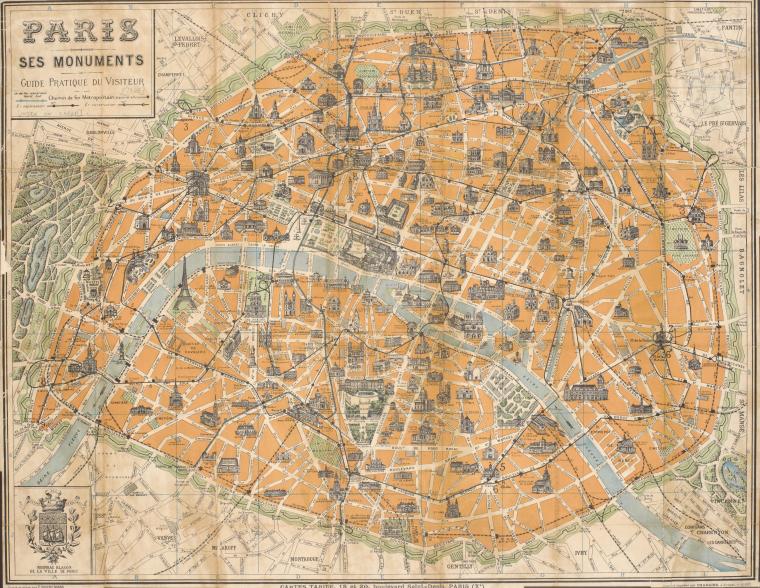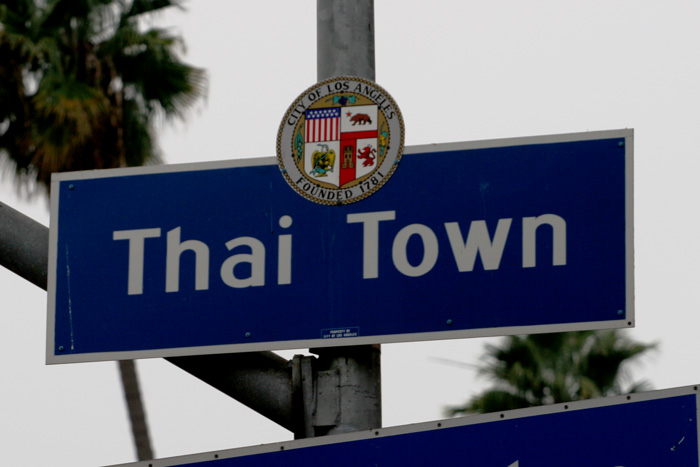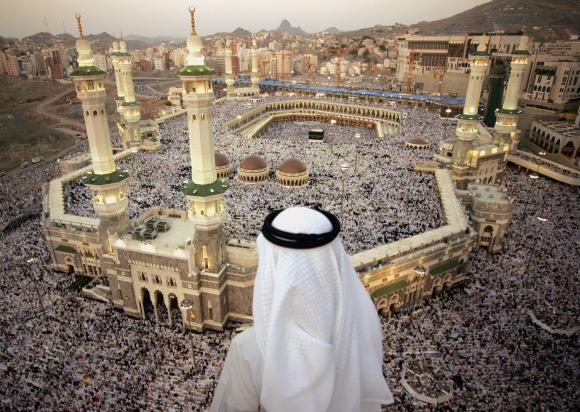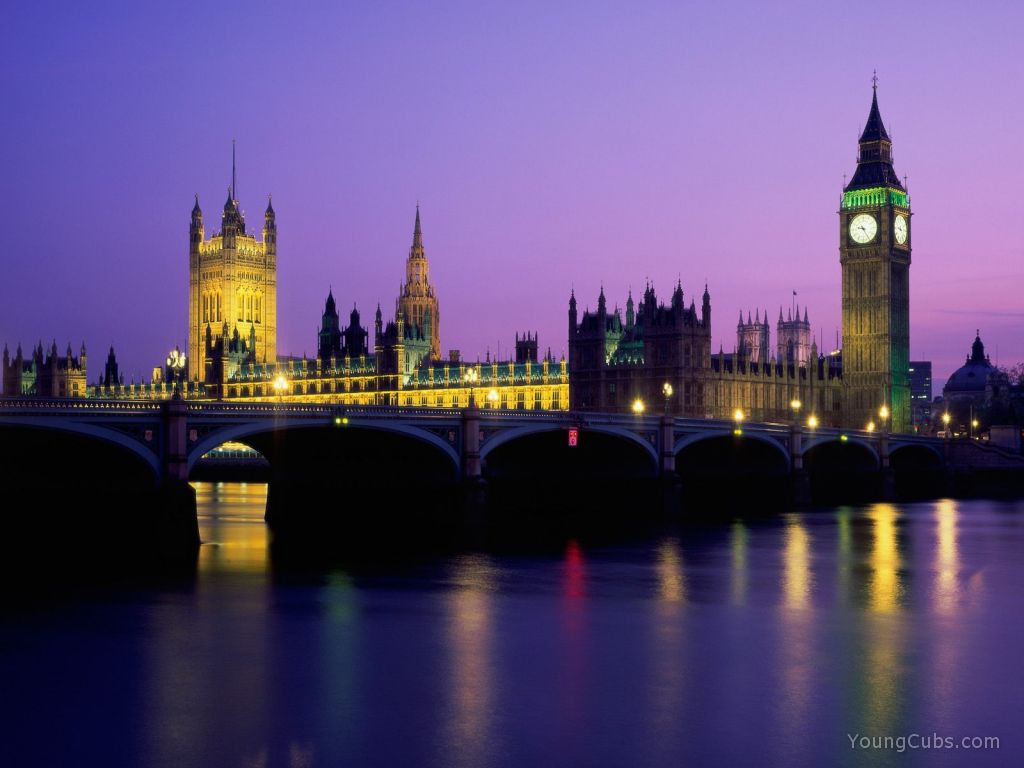I've been spending a lot of time this week cleaning my room and putting up posters and pictures I've been meaning to decorate with all year. And it's almost crazy how half the things in my apartment have to do with maps and travel! I have recently come to the realization that I am obsessed with seeing the world. Geography is my one true, undying love. Travel is my passion. There is nothing that would make me happier to see these places for myself and to imagine the history that has taken place there. Travel combines four of my absolute favorite things: geography, history, cities, and adventure.

To give you a sense of exactly how obsessed I am, here's a brief overview of some of the things I have in my room as proof. I have a
huge national geographic map I've had for a long time which shows where I've been throughout the world. There's a couple hand drawn maps of the human features of the Greater Los Angeles Area (which even shows the LA Temple! - see image to the right) and of the World. There's a framed copy of a historical map of Oahu painted in watercolor just above those next to my bookshelf, and there's a wall sticker of the London skyline spanning the entire wall above that. I have little trinkets from trips I have taken on my bookshelf including a Mardi Gras mask from NOLA, a small statue of liberty toy from NYC, an Aztec wall hanging from Mexico, and a mini hand painted fan from Chiang Mai, Thailand. There is a wall sticker of the Golden Gate Bridge on the other side of the room along with my collection of smashed pennies from places I've been on a small wall shelf near my small, wooden poster of the Eiffel Tower. I just put up a beautiful copy of this historic map of important places in Paris (see below), and each year I buy a travel themed calendar of a place I have been longing to go. This year, it's "1000 Places to See Before You Die." I won't spend any more time boring you with more details of what I have up right now, but you get the picture, right?

I never realized how passionate I was about these things until I was dying because I might have to reschedule my first ever trip to Europe - again! Both because of high airfares and a lack of travel buddies. It seems like such a silly thing to be upset over, but seriously my entire life has led up to this obsession. My family has never been wealthy enough to truly take a vacation so all my life I have fantasized about what it would be like to visit the canals of Venice or to walk the original square mile of the city of London. As a kid I loved reading random articles in the Encyclopedia and I always stopped to read about different countries and the people who made them famous. Czechoslovakia is one of the most memorable articles I have ever read. I was very young, but it was cool to recognize how the world is constantly changing around me at that age as I knew the country had split in two since that Encyclopedia was published thanks to my first snazzy map of the world given to me for being a member of National Geographic Kids' young explorer team (I was chosen to do cool activities they sent me each month, probably for research and advertising purposes). Geography and history came alive to me through imagining what it would be like to travel to those places and to relive those times.
 |
| Visiting Jackson Square in NOLA |
I suppose it also did not help that my dad works at the airport and used to bring home tourist magazines for us kids to play with all the time. I loved looking at the pictures of hotels imagining what it would be like to stay there and do all the things tourists did in Hawaii. I never knew what it was like to be a tourist at home for a long, long time (mostly because it's expensive!). Even though I have been to Thailand and Ohio several times growing up, we never really stayed in hotels or acted as tourists ever. So I kept dreaming of places like New York City, London, and Versailles. And the more I could not travel, the more I wanted it and the bigger my dreams became. In the tenth grade, I even joined a state student government program called the Secondary Student Conference because I wanted to stay in a hotel for three days in Honolulu during the event. Sure, I loved the work I did in student council. It paved the way for new (but smaller) passions and causes in my life such as education policy and urban planning. But what I loved the most about my new "passions" was that I kept finding ways to travel for free to new and exciting places. I fundraised most of the money for an alternative spring break trip to Mexico. I received academic funding from USC to attend a planning conference in New Orleans. BYU recently paid my way to Seattle for a sociology conference. And in high school, the state paid for me to go to Philadelphia for a national student council conference. I am proud at how savvy I have been at finding ways to see new places and experience new cultures. But I still can't wait for the day that I can experience leisure travel. Hopefully that day will come soon.
I have only recently come to realize this obsession that I have had for most of my life, and it really makes me wonder how it is that people develop passions for things like travel or animals or art or anything at all? Isn't it such an odd thing, contingent on life experiences and the circumstances we are born into? But most people do have something that they are passionate about. Is it something we need in order to make life meaningful as humans? Are these passions modern society's way of replacing the fanatic, obsessive sense of religion people once had until a few hundred years ago? Durkheim might have something fascinating to say on the subject of such passions replacing the old kind of religiosity that was central to life in the past. Sure, people can be and are religious these days. But really I think he was talking about the presence of something big that governs one's life. For instance, someone whose passion is dancing might have a life that revolves around their rehearsal schedules and competitions. It almost dictates their life schedule, and they need it to be happy. For me, I am constantly planning a new trip, whether or not it is realistic, trying to see if I can make Europe or any other sort of travel happen. And now that I live in the mainland, it has been awesome to take road trips! Eisenhower's highway system has given us so much power to travel and access to the rest of the 48 states. The biggest issue with travel, however, is that I don't like to travel alone. What's the good of travel if you don't have someone to share those unique experiences with? In the end, we are all social beings after all, and our passions have to play into that.



















